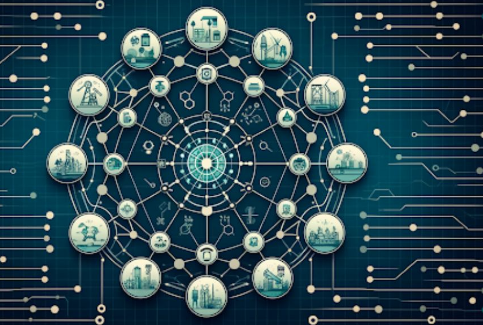DePIN (Decentralized Physical Infrastructure Networks) Trends

The rise of Decentralized Physical Infrastructure Networks (DePIN) presents a significant shift in how communities approach infrastructure development. This trend fosters local engagement and prioritizes sustainability, challenging the conventional frameworks of governance and industry. As communities begin to co-create tailored solutions, the implications for traditional supply chains and resource management become increasingly complex. Understanding these dynamics is crucial to grasping the future landscape of infrastructure practices. What further transformations lie ahead in this evolving paradigm?
The Emergence of Community-Driven Infrastructure Solutions
How have community-driven infrastructure solutions begun to reshape the landscape of decentralized systems?
Through active community engagement and robust local governance, these solutions empower citizens to co-create infrastructure tailored to their unique needs.
This participatory approach fosters autonomy, enhances resilience, and promotes sustainable practices, ultimately shifting power dynamics and enabling local populations to take charge of their infrastructural development, thus redefining traditional governance models.
Read Also: Deepfakes & Media Authentication Technologies
Enhancing Sustainability Through Decentralization
While traditional centralized systems often perpetuate inefficiencies and environmental degradation, the shift towards decentralization presents a pivotal opportunity to enhance sustainability in infrastructure development.
By leveraging renewable energy sources and promoting urban gardening initiatives, decentralized networks can foster localized, self-sufficient ecosystems.
This transition not only mitigates resource depletion but also empowers communities to take control of their environmental impact, reinforcing a sustainable future.
The Impact of DePIN on Traditional Industries
The shift towards decentralized infrastructure networks (DePIN) is poised to significantly disrupt traditional industries by reconfiguring supply chains, altering production processes, and redefining consumer interactions.
Decentralized logistics enable more agile responses to market demands, fostering competition and innovation.
This infrastructure disruption challenges established norms, compelling industries to adapt or risk obsolescence, ultimately empowering consumers with greater choices and enhanced transparency.
Conclusion
In conclusion, the rise of Decentralized Physical Infrastructure Networks (DePIN) signifies a transformative shift towards community-centric solutions, enhancing sustainability and efficiency across various sectors. For instance, a hypothetical urban gardening initiative powered by a decentralized energy grid could empower local residents to cultivate produce while minimizing carbon footprints, illustrating the potential of DePIN to intertwine ecological responsibility with community empowerment. As these trends continue to evolve, they promise to redefine infrastructure development and reshape societal engagement.





